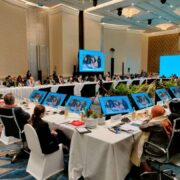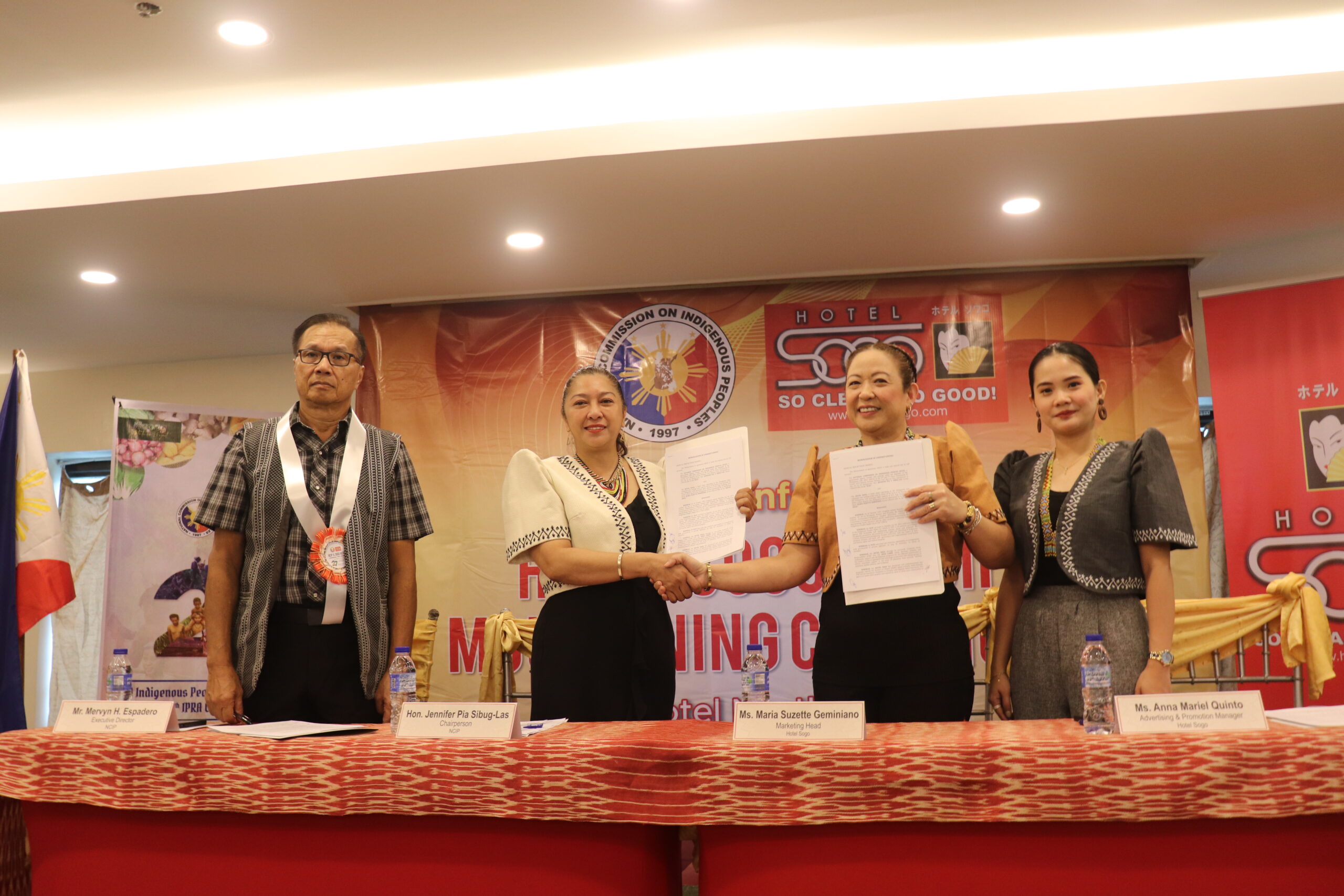
Bangkok, Thailand – Increased connectivity, travel convenience, equal opportunities, and sustainable tourism.
These were the focus points of Tourism Secretary Christina Garcia Frasco in her presentation at the 11th Asia-Pacific Economic Cooperation (APEC) Tourism Ministerial Meeting (TMM).
Secretary Frasco led the Philippines’ delegation to the 11th APEC TMM, joining Tourism Minister counterparts and high-ranking officials from APEC Member Economies including Australia, Brunei Darussalam, Canada, Chile, China (virtual participation), Hong Kong, Indonesia (virtual participation), Japan, Republic of Korea, Malaysia, Mexico, New Zealand, Papua New Guinea, Peru, The Russian Federation, Singapore, Chinese Taipei, Thailand, United States of America, and Viet Nam.
During the discussion that was facilitated by Thailand Minister of Tourism and Sports (MOST) and APEC TMM Chair Phiphat Ratchakitprakarn on the key strategies to accelerate the recovery of travel and tourism in the post-COVID-19 pandemic, Secretary Frasco shared some of the tourism recovery strategies of the Philippine government, which can be magnified and adapted on a larger scale in areas like the APEC region.
Increased connectivity through infrastructure development, increased flights, and information digitalization
To increase connectivity with APEC Member Economies and the rest of the world, Secretary Frasco shed light on the Philippines’ strategies to introduce improvements to infrastructure and transportation in order to provide an enhanced and affordable experience for visitors.

“Connectivity aims to ensure that our tourist destinations are accessible through improved transportation networks and affordable travel costs. Our approach is geared towards proactive and aggressive infrastructure development that provides quality access to roads, bridges, water systems, and various methods of transportation by land, sea, and air,” explained Secretary Frasco.
The Tourism Secretary also disclosed the country’s plans of partnering with airlines and airports in the reinstatement of flights and development of new routes in order to restore affordable, and competitive rates for international and domestic travel.
“We shall facilitate partnerships with airlines and airports with the reinstatement of flights and the development of new routes with the end in view improving connectivity across economies within the APEC and across the globe and restoring affordable and competitive rates for international and domestic travel,” announced Secretary Frasco.
As she communicated the commitment of the Philippine government through the Department of Tourism (DOT) to carry out measures that will introduce proactive and aggressive development in all aspects of tourism, Secretary Frasco also identified digitalization of access of information and booking services enhancement as one of the major strategies eyed to enhance end-to-end connectivity in the country.
“We are closely studying the development of a tourist life cycle app, a mobile application that connects tourists to accommodation, food, shopping, transportation and the like that will also enable us to monitor tourism intelligence data to better improve our tourism services,” said the Tourism Secretary.
Vaccine interoperability for a more convenient travel experience
In terms of increasing travel convenience, Secretary Frasco advocated for the interoperability of vaccine certificates, uniformity of protocols, and establishment of tourism circuits across APEC Member Economies.
The Tourism Secretary had earlier stated the country’s support to the interoperability of vaccine certificates after the presentation made by the APEC Policy Support made a presentation on its report titled “COVID-19 and Cross Border Mobility in the APEC Region: Addressing Uncertainties at the Border” during the morning part of the APEC TMM.
“To advance safe mobility, the Philippines supports the push for the interoperability of vaccine certificates. The Philippines is one with the tourism industry in supporting steps being undertaken to continue to open up our borders and facilitate seamless travel across destinations and economies in order to spur economic activity and people-to-people connectivity,” said Secretary Frasco.
“Convenience may be spurred to ensure the uniformity of protocols and the interoperability of vaccine certificates across economies, as well as the development and updating of travel applications to make travel and destination information readily available,” she added.
Equal opportunities and sustainable tourism for all
Given the unprecedented effects of the pandemic on the global tourism industry, Secretary Frasco also encouraged Member Economies to equalize tourism opportunities across underdeveloped destinations in order to spread economic benefits, a strategy that the DOT has commenced in its pursuit to spur national tourism recovery and fulfill the vision of President Ferdinand Marcos Jr. for the tourism industry to become one of the country’s major economic pillars.
“With new market preferences emerging for more sustainable tourism products, there is now an opportunity for new tourism destinations and products to be developed, paving the way for more multi-dimensional tourism experiences that are immersive and reflective of the unique cultures of the various economies in APEC,” said Secretary Frasco.
“The equalization of opportunities across underdeveloped destinations among APEC Member Economies is critical to spread economic opportunities to ensure that no one is left behind as we reboot and restart the travel and tourism industry,” she noted.
Fully aware of tourism’s propensity to have adverse impact on local communities and the environment if without proper regulation within the jurisdiction, Secretary Frasco strongly pushed for the prioritization of sustainable tourism practices, and coordination between APEC economies, as well as national and local governments.
“Since we’ve all envisioned the long-term success of the tourism industry, sustainable tourism paired with effective local and national governance and coordination spells the way forward. It is for this reason that we advocate for a close collaboration between APEC economies as well as national and local governments to prolong the life cycle of a tourist destination. Sustainable tourism policies need to be integrated within a wider economic, social, and environmental policy consideration within an overall sustainable development framework,” said Secretary Frasco.
“We must therefore look at the basic elements of sustainable development as a guide post in the revival and continued recovery of the tourism industry across our economies,” added Secretary Frasco, who is the youngest among the heads of national tourism organizations present at the 11th APEC TMM.
The APEC TMM is the highest decision-making body of the APEC Tourism Sector. Hosted by Thailand, the 11th APEC TMM is the first time that Tourism Ministers from the APEC Member Economies have physically convened since the last APEC TMM that was held in Papua New Guinea in 2018.



